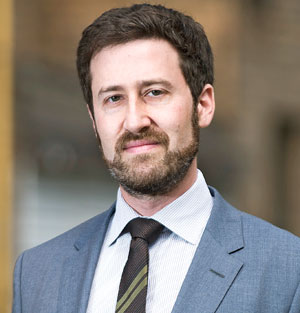Despite attempts to speed up the length of time it takes for complaints to make their way through its system, the Law Society of Upper Canada saw the median age of complaints rise considerably in 2016.

Statistics provided by the law society show that the median age of active caseloads in its investigations department in 2016 was 380 days, which was up from 268 days the year before. Its target was 240 days.
When the law society receives a complaint, it gets triaged into either the investigations department or the complaints resolution department, depending on the seriousness of the allegations.
Last year, the median age of a complaint in the resolution department also increased to 308 days from 199 days the year before.

Lawyers say prolonged investigations can be anxiety ridden for accused practitioners.
Of the 2,139 complaints transferred for investigation last year, 168 made it to a hearing, interlocutory suspension or notice of application.
“The problem for the licensee with long, open investigation files is that the licensee is burdened by protracted anxiety and uncertainty,” says Richard Watson, a lawyer who represents practitioners in law society discipline proceedings.
The LSUC says it has implemented a restructuring process that it hopes will make the process more efficient and effective. This included changing the intake department so that, in addition to receiving complaints, it resolves and closes some files early on rather than transferring them for investigation.
Before the restructuring, the law society had found that 60 per cent of files being sent to investigators from intake were being closed.
Karen Manarin, executive director of the law society’s Professional Regulation Division, says the changes have been effective in decreasing backlogs in the system.
She says the division had 42 per cent fewer files at the end of May 2017 compared with the same time last year.
“What we’re trying to do is free up the time of the investigators and the discipline counsel to work on the more serious matters,” she says.
The law society, however, said numbers for the median age of complaints from the beginning of 2017 were not available.
The changes also included integrating the functions of the investigation and discipline departments. This means that investigators receive integrated legal advice throughout the process.
Manarin blamed the increase of the median age of complaints in 2016 on an attempt to deal with old complaints.
“When you deal with the older cases, the ones that have been around a little longer, that means your median age is going to go up,” she says.
In addition to being a burden for lawyers under investigation, Watson says prolonged investigation periods can open up the law society to potential liability to the complainant, to whom the regulator can owe a duty of care.
As the median age of complaints went up from 2015 to 2016, there was not a significant rise in the number of complaints received, and the number of complaints transferred for investigation decreased.
Manarin says the law society allocates the resources available to priority files.
“We deal with whatever budget is given to us and on that basis we allocate our limited resources to the number of files that we get and we manage risk,” she says.
Watson says law society investigations seem to be conducted with a high degree of variability. Some remain open and uninvestigated for years, while others are expedited and completed quickly.
Daniel Naymark, a lawyer who represents accused practitioners in law society proceedings, says the law society needs to be mindful of the tension between public image and fairness to lawyers it investigates and charges.
Naymark represented lawyer Doug Keshen, who faced allegations by the law society that he had exploited several dozen survivors of Indian Residential Schools.
The law society ended up dismissing the prosecution two years after it filed charges, but by this time, Naymark says, his client’s life had been ruined.
Naymark blames the premature prosecution on the fact that the law society was facing media criticism at the time for its handling of other cases concerning lawyers exploiting vulnerable clients.
He says this pushed the LSUC to charge Keshen before it had properly finished its investigation. Naymark adds that as a result of the law society publicizing the charges, Keshen had the accusations hanging over him for longer than he should have.
“There is a tension between the law society’s self-interest in its public image on the one hand, in being seen as responding swiftly and aggressively to threats to the public from bad lawyers, and on the other hand its moral duty to lawyers against whom it levels damaging accusations,” he says.
“Unfortunately, our regulator has not always navigated that tension especially well.”
Since Keshen’s matter was dismissed, the law society has set up an internal review to examine how the regulator’s complaint and hearing process affects indigenous people.
To read the second story in the summer series in
Law Times focusing on lawyer discipline, you can read
Law society ramps up interim suspensions.

 Statistics provided by the law society show that the median age of active caseloads in its investigations department in 2016 was 380 days, which was up from 268 days the year before. Its target was 240 days.
Statistics provided by the law society show that the median age of active caseloads in its investigations department in 2016 was 380 days, which was up from 268 days the year before. Its target was 240 days. Lawyers say prolonged investigations can be anxiety ridden for accused practitioners.
Lawyers say prolonged investigations can be anxiety ridden for accused practitioners.